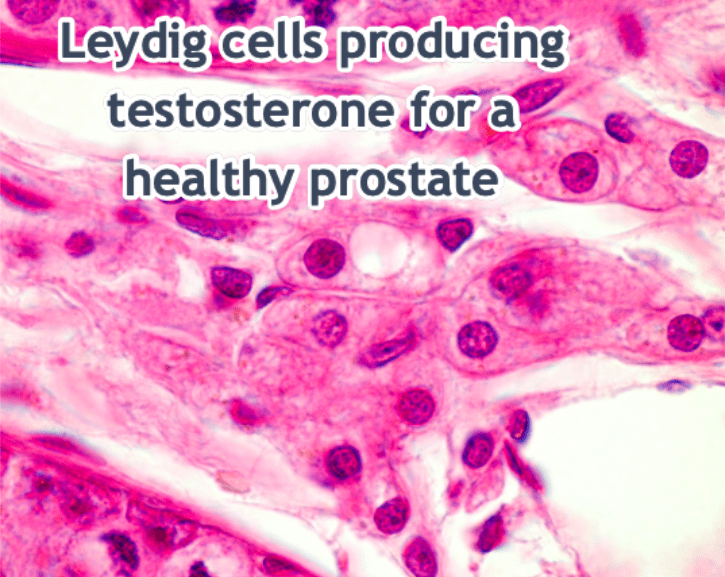
[cmamad id=”20683″ align=”center” tabid=”display-desktop” mobid=”display-desktop” stg=””]
And sleeping wrong triples the chance of getting prostate cancer…
—-Important Message—-
Discover What Doctors Aren’t Telling Men About Their Prostate
Here’s what my doctor didn’t tell me about my prostate…. Maybe your doctor isn’t telling you this either…
I discovered a certain practice done by men who are 110 or even older – men who NEVER have prostate problems. Ever.
So these men never have to worry about waking up multiple times a night to pee…
And they never have to experience radiation, surgeries, or hormone therapy…
These very old men use a special cancer-fighting nutrient that reduces prostate inflammation to near zero.
This nutrient reduces harmful estrogen in men and stimulates the Leydig cells into producing more natural testosterone…

————
Making Prostate Problems Disappear – While You Sleep
A number of studies show a link between prostate problems and sleep patterns.
And men who don’t sleep regular hours experience THREE TIMES more prostate cancer…

Researchers carried out this human study at the Department of Clinical Epidemiology, University of Kitakyushu, Japan and published their results in the American Journal of Epidemiology.
They studied shift workers – people who work erratic or irregular schedules.
Scientists have known about the link between shift work and chronic disease for decades.
[cmamad id=”20685″ align=”center” tabid=”display-desktop” mobid=”display-desktop” stg=””]
“Shift workers are at high risk for gastrointestinal disturbances, obesity, hypercholesterolemia, hypertension, breast and colorectal cancer.”
The increase in breast cancer risk prompted some researchers to suspect a link between prostate cancer and shift work.
“Although breast cancer occurs predominantly in women and prostate cancer is restricted to men, these cancers share some similar features.”
So this study looked at the risk of prostate cancer in relation to different types of shift work.
“We examined the hypothesis that shift work is a risk factor for prostate cancer incidence in a nationwide, large-scale, prospective cohort study.”
This large study enrolled over 14,000 Japanese men.
“14,052 working men in Japan enrolled in a large-scale prospective cohort.”
The researchers grouped shift work into three categories.
“Subjects were asked to indicate the most regular work schedule they had undertaken previously: day work, rotating-shift work, or fixed-night work.”
They tracked all the men for a number of years and recorded their incidence of prostate cancer over that time.
“During 111,974 person-years, the cases of prostate cancer were recorded.”
The researchers adjusted the information according to other known risk factors for prostate cancer:
- Age
- Family history of prostate cancer
- Study area surveyed
- Body mass index
- Smoking
- Alcohol consumption
- Job type
- Physical activity at work
- Workplace perceived stress
- Educational level
- Marriage status
Taking all of this into account, the researchers found that…
Rotating shift work tripled the risk of prostate cancer.
“Compared with day workers, rotating-shift workers were significantly at risk for prostate cancer. Relative risk 3.0.”
They defined rotating shift work as alternating day and night work.
They found only a small increase in the risk of prostate cancer for people who worked the night shift only rather than rotating shifts.
“Fixed-night work was associated with a small and nonsignificant increase in risk.”
The study indicates that alternating between night and day shifts may increase the risk of prostate cancer.
“To our knowledge, this is the first report to reveal the association of rotating-shift work with prostate cancer.”
Alarmingly, about one in every 40 Americans works on an alternating shift basis.
The researchers suggested that alterations in melatonin levels may be to blame for the increased risk of these cancers.
Melatonin is a hormone – it increases at night during darkness.
“The melatonin pathway is most frequently implicated in the observed increase in tumor incidence among shift workers.”
It’s probably a lot more complicated than that, though.
According to a lot of research, humans are optimized to be daytime animals.
“Decreased exposure to daylight is known to be a risk factor for prostate cancer.”
The daily cycle sets many of our biological rhythms.
Daylight patterns are just one input we need to maintain healthy bodies.
Maybe people who work a constant night shift develop an adaptation to this over time.
Clearly, that is not optimal. But it seems to be less risky than living with alternating sleep-wake cycles.
“Effects on circadian rhythms were suggested to be more serious for rotating-shift workers compared with fixed-night workers.”
Normal sleep cycles are a critical and often-overlooked foundation for health.
You should always consult a healthcare professional about diagnosing and treating health problems.
—-Important Message—-
Not getting erections? You may have penile fibrosis – and here’s how you can tell…
One of my students, Joel, had penile fibrosis and didn’t know he had it.
Joel wrote to me one day and said, “Hey Matt, I’m having trouble getting erections. I’m not getting morning wood anymore… It’s been quite a while…”
And Joel said his doctor didn’t find anything wrong with him… But Joel actually had penile fibrosis.
So I showed Joel a simple little method of reversing penile fibrosis at home.
It’s actually pleasurable to do… And it can work in 20 minutes to restore great erections.
(Hint: You may need a new toothbrush…)
And this works for married men, single men, men who haven’t had sex in years – and men who just want to erections that are a little bigger and thicker…
So you can go back to having amazing sex that lasts 30 minutes or longer…

————

https://academic.oup.com/aje/article/164/6/549/129870
https://www.cancer.net/cancer-types/prostate-cancer/symptoms-and-signs
https://www.cancercenter.com/cancer-types/prostate-cancer/types
https://prostatecanceruk.org/prostate-information/about-prostate-cancer/prostate-cancer-symptoms
Did you know that prostate cancer at an early stage does not show any warning signs? It is only when cancer has progressed further, that one can notice signs that can hint about this health disorder.
Prostate cancer is an acute form of cancer where the tissues of the prostate gland get affected. The prostate gland plays an important role in the production of semen and thus is often a common cause for sexual disorders. In America, it is estimated that nearly one in nine men will develop prostate cancer in their lifetime. Surprisingly, it is the most common type of cancer found in American men. Based on American data, as many as 3 million men are living with Prostate Cancer.
Medical studies show that if one is able to diagnose and get treated early, especially when Prostate Gland cancer in its early stages, then it is treatable. This is why in most Cancer forms, the diagnosis and health checks play an important role. "Evidence-informed therapies can help reduce the effects of Prostate Gland cancer such as erectile dysfunction and incontinence", says an expert at the Cancer Treatment Centers of America.
The early warning signs of prostate cancer include frequent urination, which is intense especially during night time. The urine flow is usually weak and interrupted. In certain cases, there may be blood in the urine. Some experience a burning sensation or pain when they urinate. One can also suffer from the early stages of sexual disorder like erectile dysfunction. If you have a painful erection too, that can be a warning sign for prostate cancer. There may be blood in semen and ejaculation is painful in these cases. According to select studies, the symptoms of Prostate Cancer also include the inability to start or start the flow of urine while peeing. Urine leaks while doing normal daily tasks can also indicate that you have to check yourself with a doctor. Most of these signs develop very slowly over time. So if you see the above changes, it is prudent to let yourself be tested.
Those some of these symptoms are similar to an enlarged prostate condition; there are other factors that can hint at the prevalence of prostate cancer. What are they?
You may experience pain in your hips, back, and thighs, especially where cancer has spread outside of the prostate gland. Soreness and pain in the shoulders might also occur in particular cases. The other signs include swelling or the building up of fluids in the legs or more specifically the lower parts of the body. The individual can suffer from unexplained loss of weight and go through phases of intense fatigue. There may be swells of vomiting and intense fatigue. These are signs of danger. It is recommended to seek a doctor as soon as possible in these cases.
The real cause for Prostate Cancer is still unknown but it is prudent to know about the risk factors for Prostate Cancer so that adequate care can be taken. Somebody with a family history of Prostate problems can be at risk too. Men who have an immediate blood relative who has Prostate Cancer, the probability of getting affected also increases.
The other factors include obesity and a diet which is rich in saturated fat. Modern diets and fast foods create havoc in ways where the body's immune system and its natural ability to recoup and heal gets affected. If one looks at the rate of diabetes and cancer patients that is turning up for medical attention and the type of foods that go inside our stomachs, one can truly discern from where most of our epidemic diseases are coming from. If you take a lot of caffeine ( Coffee ), drink alcohol, eat refined sugar and saturated fats, the propensity of getting affected by prostate cancer only increases.

Leave a Reply